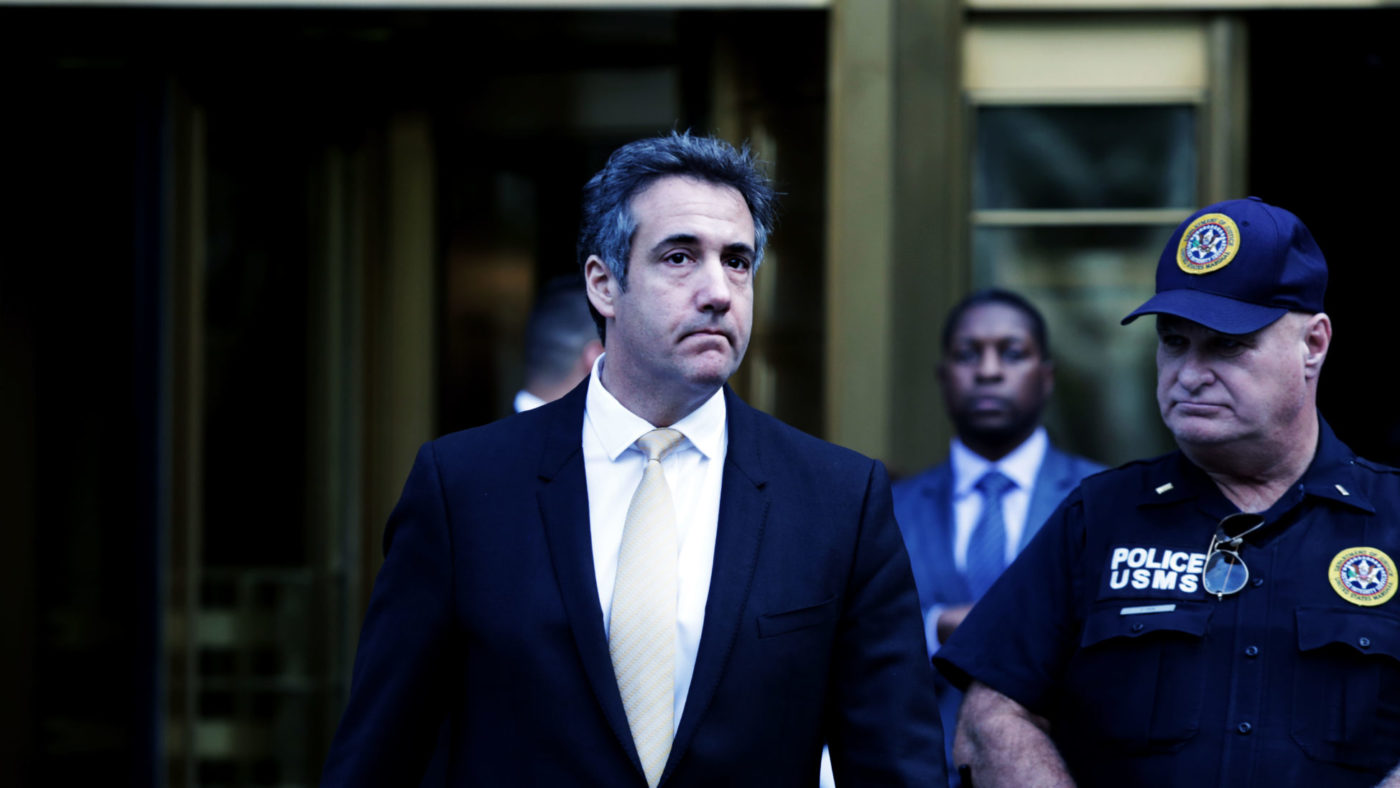American politicians and political operatives are never above the law.
The plight of President Trump’s former lawyer, Michael Cohen, and his former campaign chairman, Paul Manafort, proves as much. Rarely have we seen such dramatic falls from political grace.
In November 2016, Cohen and Manafort had the world at their finger-tips. Important cogs in President Trump’s machine, the two men had earned favour from the very top. Favour they sought to use to gain new connections and wealth. But their arrogance was their undoing. Whether openly threatening journalists and avoiding tax payments, or gleefully dealing with Ukrainian organised crimes bosses, Cohen and Manafort evidently believed that the law would never catch up with them. It was a very stupid gambit.
First off, journalists in America know that they have the world’s greatest balance of safety and opportunity. They can pursue stories without risking Mexican-style assassinations or English-law style lawsuits. And if they find stories of major public import, they can quickly forge very successful and respected careers. In consideration of their former crimes, Cohen and Manafort should have known it was a bad idea to remain close to Trump after his election victory.
They should have known that the media would start digging into their past in order to find something of import. This was especially true in Trump’s case, given the media’s thinly-veiled hatred for him. Instead, they chose the limelight – keeping up busy public profiles – in including, in Cohen’s case, an active Twitter feed.
But a more important concern here is the FBI.
Because whatever its flaws – and the bureau’s fumbled handling of the Hillary Clinton email investigation proves its imperfections – the FBI remains the world’s foremost law enforcement agency. And just as journalists know they can make careers by bringing public attention to important matters, FBI agents and analysts know then can make careers by detecting and defeating big name criminals.
The issue of morality aside, few politicians seem to take this reality as seriously as they should. After all, countering political corruption or financial misconduct are priority FBI missions just behind national security. Indeed, countering public corruption is the top priority of the FBI’s criminal investigative branch.
And they are priority interests for a simple reason: safeguarding the nation’s economic and political health. The FBI doesn’t attempt to hide its energetic focus here. On its website, the bureau’s public corruption program notes it is “uniquely situated to combat corruption, with the skills and capabilities to run complex undercover operations and surveillance.”
Manafort is a particular idiot in this regard. After all, the FBI has its own dedicated International Corruption Unit to investigate US citizens or US business-related corruption outside American borders.
The bureau’s liaison offices around the world play a key role in this work and benefit from the support of foreign law enforcement partners who are grateful to the FBI for their support on other investigative issues. In short, Manafort should have assumed his misconduct in hiding vast payments from Ukrainian organised crime bosses would be detected and prosecuted.
Yet it is the numbers that matter most here.
Specifically, the vast number of corruption or misconduct related prosecutions brought against US elected officials. Every single year brings multiple prosecutions against senior politicians. Although his case received less attention than the Cohen-Manafort stories, another politician, the Republican Congressman Duncan Hunter, was also indicted on financial fraud charges this week.
Hunter is accused of, among other crimes, shopping in golf stores for his own use under the pretence that he was doing so for military veterans and travelling to Italy on the back of campaign donations. Other recent tales of political misconduct offer a mix between those who hid ill-gotten money in freezers and those who used public funds to redecorate their offices to emulate Downton Abbey.
But the simple truth is sustaining: American politicians often get caught for being arrogant and doing illegal things. That brings us back to the underlying issue here: why, if they intended to remain in the public space, did Cohen and Manafort act so capriciously for so long?
Arrogance, of course. They believed they could get away with what they were doing because they had powerful friends and public positions. They were wrong.
Still, other criminals in high society cloaks should now pay heed to Cohen and Manafort’s predicament. Because this stunning fall from perceptive grace proves something: in America, while you can use political access to get very rich, no one is beyond scrutiny or above the law.


